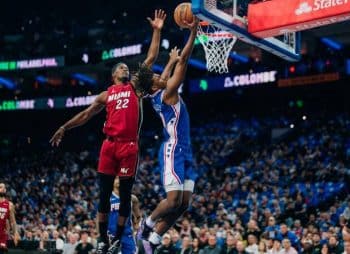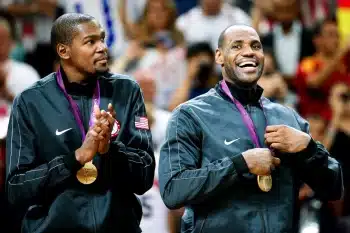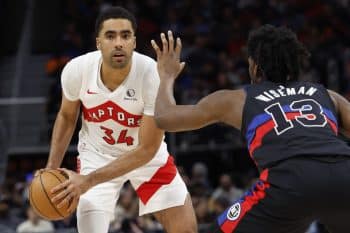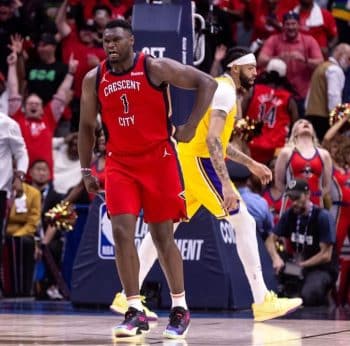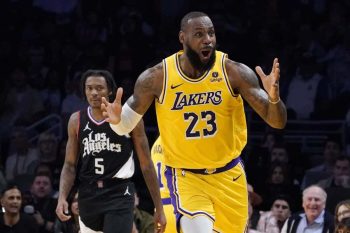NBA
NBA Daily: Change is Among the Biggest Challenges for Rookies

Change is a common theme amongst NBA rookies. For some, it’s simply a new job with new co-workers, a bigger salary and increased visibility. But for most, it’s much more.
For the lucky 60 players drafted each year – and the various undrafted rookies who latch on with a team – life turns on its head. Don’t get me wrong, the NBA obviously has its perks. But that doesn’t make the transition easy. Far from home, unfamiliar with what’s expected of them and (often times) lacking job security beyond the next season — most rookies struggle with all of the change.
Gone are the days of being the main event — remember, most (if not all) rookies were the first or second option on their respective college teams. They must learn to fit into a new and much smaller role that usually lacks much of what rookies have come to expect — nearly unlimited shot attempts, a featured role in the offense and/or accommodations on defense. They often times receive less attention from the coaching staff, and they must acclimate to a very different way of life that includes more stress and less time between games.
The effect is usually quite profound. Look over the 2018 first round picks and compare their early numbers thus far to those that they put up in college or overseas. The talent in the NBA is greater, and the speed of the game is unmatched by any other basketball league. Now imagine the stress caused by competing at that level while learning a new role, which often varies game-to-game. Sounds difficult, right?
New York Knicks undrafted rookie Allonzo Trier knows a thing or two about it. Trier was widely considered a top-20 recruit in the 2015 high school class, but a lack of size and his ball-stopping nature led many scouts to assume his game was not a fit for the NBA (early returns indicate they were wrong). But he’s been patient and has capitalized on his opportunities thus far, which has endeared him to Knicks fans and the experts, alike.
“[There are] differences in roles from college and the pros. You’re still unsure about a lot. It’s learning a lot on the fly and trying to figure things out [that’s most challenging],” said Trier.
But his work ethic and desire to improve are favorable characteristics. After a recent loss to the defending champion Golden State Warriors in which he posted career lows in points (two) and minutes (16), Trier showed he has a well-measured perspective on the NBA and his place in it.
“Maintaining focus without consistent minutes is part of being a pro. [You’ve] Got to be ready when your name’s called. Some games it’s your night to play more minutes and play a bigger role, and other nights you’ll play less. My role has been a little less lately. But I’ve gotta come in when it’s my time. I’m young, it’s a part of learning.”
While he finds himself in a very different role and situation, Trier seems to understand that his approach must remain unchanged. And that’s exactly the type of attitude coaches look for.
Jacob Evans III is another rookie. Unlike Trier, who signed with the Knicks after going undrafted, Evans was a first round pick of the Golden State Warriors. If Trier’s role varies game to game, Evans role is mostly inconsequential — but not to him.
While he has only received 7.4 minutes per game so far, Evans appreciates the opportunity to learn from the best.
“It’s a mental thing,” said Evans. “You watch guys on the team, and their preparation is unbelievable. You think they’re preparing themselves, I should prepare myself the same way — and sometimes even try to do a little bit more so I know I can be ready.”
While it may seem like rookies deal with the struggle of transitioning alone, they don’t. Teams have a vested interest in their players acclimating and developing. Warriors Coach Steve Kerr recently stressed the importance of building confidence and getting his players acclimated to the system in Golden State. “It’s a big deal for us. We have a head of player development — Chris DeMarco — and our young guys basically practice [with him] every day before the starters and vets get here. Do an hour plus worth of work before the team practices.”
Mentorship is an important part of the process. Rookies might not always have an abundance of playing time to learn from, but they have teammates to talk to about the struggles that go hand-in-hand with the acclimation to the NBA. “They give you tips about how to be confident on the floor,” said Evans. “But it’s a lot more that comes with the game than the basketball part. They make sure that I’m OK off the court, away from basketball. So it makes my job easier to do.”
Coach Kerr elaborated on the role that mentorship plays in the NBA.
“It’s a much more natural evolution for a young guy to come in and be mentored by a vet who’s comfortable in his own skin, and with his career and contract situation. And then there comes a natural evolution where the young player grows and eventually takes over for the older guy.”
But while mentors are important, there’s no teacher like experience. And Coach Kerr acknowledged as much, while conceding that it’s a challenge to find the lineups for rookies to set them up for success.
“[In games] I am constantly mixing and matching, and making sure all those guys get a chance to play. It’s easier having such great talent. [It’s] easier to throw guys out there with them because it’s easier to survive,” Kerr said. “You’re not going to lose a game by putting a young player who might not be quite ready because you have Steph and KD, Klay and Draymond. So you try to find the right combinations so that the young player you’re trying to develop is with the right combination of guys that will help him thrive.”
It’s important that rookies understand the time it takes to develop into a star, or even a starter. And it’s equally important to understand that each player’s respective timeline is different. Coach Kerr put it best.
“That’s a season long project. And by the end of the year, hopefully they’ve come a long way.”
But regardless of the how long it takes, the end-goal is the same: success. Evans acknowledged as much.
“I’m not on their [my teammates’] level yet, but that’s the level I’m trying to get to. I take it really seriously.”
The NBA can be an unforgiving place, especially to newcomers. Every rookie’s experience varies, but one thing is certain —work ethic and a willingness to do what’s asked of you goes a long way in this league. Players who buy into a team’s program and do what’s asked of them generally stick around, while those who don’t — especially as rookies — find themselves fighting an uphill battle. But players like Trier and Evans will find a spot on teams as long as they maintain the positive perspective that helped them reach this level in the first place.
